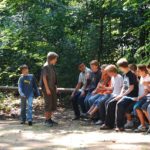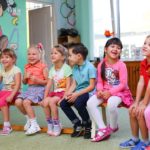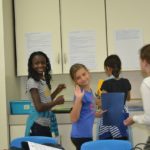
School bullying through the eyes of a teenager
Bullying in schools leaves a lasting mark on its victims. It is important to understand these processes in order to deal with situations effectively.

Bullying in schools leaves a lasting mark on its victims. It is important to understand these processes in order to deal with situations effectively.

According to the IRM Decree 69/2009 (XII. 17.) on the professional training and further training of mediators, the Ministry of Justice requires training for admission to the mediator register from January 2010.

- As a municipal leader, do you have problems with complex local issues?
- Are you concerned about how to better involve the public?
- Have you tried this before, but are you looking for more effective solutions?

Social integration is a process in which individual values interact when cultures meet, and retain their original characteristics in the system of new values that emerge. This, together with other core values such as diversity, acceptance and openness, and equal opportunities, underpin our work on Roma inclusion.

Our national and international experience shows that the best way to tackle aggression in preschool and school is prevention. And the key to prevention is a strong community, where individual and collective responsibility is based on commonly agreed rules and interconnections between community members.

Child aggression and peer abuse present themselves in different ways in different institutions and are a growing challenge for teachers, students, parents and professionals working in the school environment. Without appropriate tools, tensions increase and helplessness can turn into aggression. The consequences are still being felt decades later.

Effective conflict management in schools - how? Our training in mediation and restorative practices gives educators state-of-the-art tools to deal with student-student, parent-educator or teacher-teacher disagreements.

Conflict management with young children: a 3-day, 30-credit course for pre-school and primary school teachers.

Partners Hungary Foundation has been working on conflicts in kindergartens and schools since 2009. Using mediation, facilitated discussion and restorative practices, we have successfully dealt with numerous conflicts in kindergartens and schools. Over the past years, we have trained more than 250 educational professionals (teachers, kindergarten teachers, headmasters, school psychologists, social workers) and students as mediators.

Conflict is a natural part of housing communities, as many of us are diverse. We have different ideas about what quiet and order means, different schedules and values.

Mediation can help companies save money, energy and time when they choose this method to deal with conflicts, but few companies in Hungary are taking advantage of this opportunity: only six percent of the fifteen thousand cases a year are resolved using alternative conflict management methods.

There is a perception, based on direct or indirect experience, that divorce is too costly, lengthy and burdensome a process. However, many believe that everyone finds it easier to cope with a civilised break-up than the constant games and wars of a dysfunctional family.

Relationship mediation provides the space and opportunity to re-establish quality connections between the two people who make up a couple.

There is no family without conflict. However, every conflict is an opportunity to talk about what we need to work better together and what each of us can do to achieve it.

With the help of our experienced facilitators with methodological experience, meetings at work, in the community or at school become easier and more effective. Our professionals work with communication tools that make collaboration quick, easy and effective.

We have heard a lot about aggression in the school environment in recent years, as it is a serious problem in many schools around the world. Conflicts are present at all levels of education - from primary to higher education - and represent a multifaceted problem.